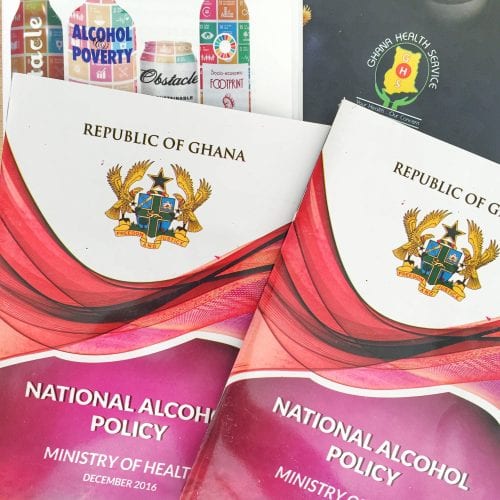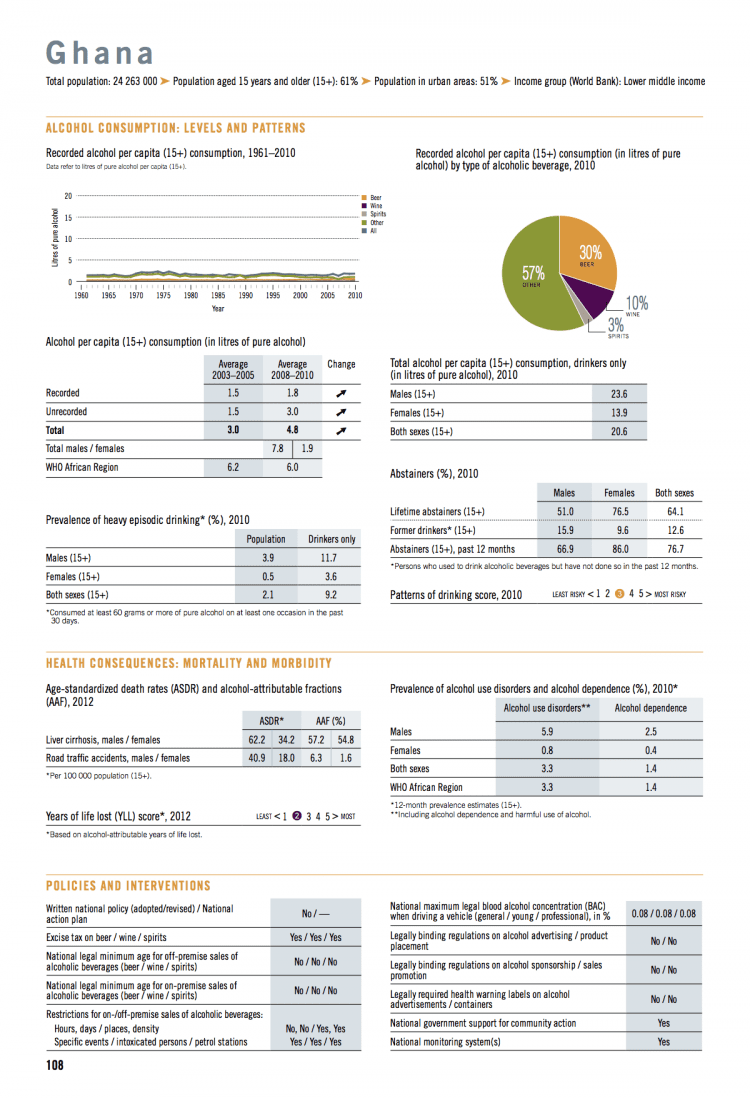New destination but familiar atmosphere
Accra, the capital of Ghana. Humid. Warm. Smiling people.
This was my first trip to West Africa and I was quite glad when I stepped out of the airport that it was in Accra. The smells were familiar. And the warmth and humidity were a welcome relief after I had been in a -1 to zero degree Celsius Stockholm for the previous two weeks (on duty travel for my job at Forum Syd). The people were smiling in a shy and welcoming manner and I immediately felt at home. Our host, Labram, was at arrivals waiting for us even after his 5 hour road trip from Cape Coast.
Kristina and I were excited to arrive to Ghana for our advocacy and study visit – engaging both in alcohol policy advocacy meetings and meeting with our members in the country.
The morning after arrival was Easter Sunday and it has become a habit of mine to take a run in order to get acclimatized and just get to see where I am and how the people are.
I was not surprised to find a lot of young men playing football and a lot of men and women dressed in white on their way to church to celebrate Easter. I was surprised however, at how calm and secure I felt even though there were no other female runners and of course how drenched in sweat I got (of course due to the humidity). Nonetheless, I managed an easy 4 mile jog. Ghanaian food was another welcome surprise! It was delicious, colorful and flavorful!
Challenges and opportunities in alcohol policy
We welcomed the opportunity to arrive to Ghana during Easter holidays because it allowed us to soak in the atmosphere, see different places in Accra, understand how the people live and what the challenges and opportunities are and were progress has been made.
We had many impressions to digest and discuss and really appreciated the hospitality of our hosts Issah and Labram.
And then we felt ready for an intense stretch of days with loads of meetings, conversations and workshops.
Our awesome member organization Vision for Alternative Development (VALD) had arranged a number of meetings for the duration of our stay.
Meeting the ministry of health
Ghana had adopted a new “National Alcohol Policy” in December 2016. It had been developed by the Government of Ghana – Ministry of Health and supported by the World Health Organization and the Baraka Policy Institute. Alcohol harm in Ghana is staggering and forms a big obstacle to development – even more so considering the fact that almost 77% of the adult population live free from alcohol every year. On the flip side, total per capita alcohol consumption of those who consume alcohol is at 20.6 liters of pure alcohol, per year. And the trend for per capita consumption is upwards.
Therefore, we were excited that the first meeting was with the Ministry of Health – the ones that had enabled the Alcohol Policy formulation. The Policy creation was conducted besides the Ministry of Health by Civil Society Organizations, Ministry of Gender, Children and Social Development, Food and Drug Authority (FDA), and the Domestic Violence department in the Police.
 The most surprising thing to me during the meetings was that alcohol was considered “food” by the FDA in Ghana. So it is treated as an ordinary food commodity and is regulated the same way a packet of orange juice is.
The most surprising thing to me during the meetings was that alcohol was considered “food” by the FDA in Ghana. So it is treated as an ordinary food commodity and is regulated the same way a packet of orange juice is.
I believe it is integral if the policy is to be implemented effectively for this classification to change. Alcohol is not an ordinary commodity and it needs to be treated as such.
However, it was also clear that the alcohol industry is and has been lobbying aggressively to water down the policy, and weaken the adoption of evidence-based policy measures..
Our alcohol policy workshop
Apart from a whole host of meetings, we also organized a workshop for civil society to discuss alcohol harm in the country and empower evidence-based community action.
One issue that came out clearly as a major concern is the aggressive activity of the alcohol industry, both when it comes to promotion of their products and to political activity. The alcohol industry is trying hard to change the alcohol norm in the country.
Big Alcohol has managed to convince Ghanaians that most of them use alcohol – despite WHO evidence to the contrary. This matters because part of the solutions must be the protection of the right to choose not to use alcohol – es stipulated by guiding principle G, in the WHO Global Alcohol Strategy.
I’m sure that Ghana can learn from other African countries that already have Alcohol policies such as Botswana, Malawi and Kenya. There are many lessons from these countries to be learned especially on Big Alcohol interference resulting in watered-down policies. A champion from Ghana’s parliament is needed to ensure that the policy will be a utilized document that does not gather dust on a shelf.
Grass-roots mobilization
I was impressed to learn and see first hand the dedication and commitment among grass-roots and civil society organizations(CSOs) to form an Alcohol Policy Alliance. This will go a long way to make the voices of the people affected by alcohol harm become loud, clear and united. Already in our workshop in Accra, there were varied CSOs from children’s and women’s rights organizations, as well as from health and social development CSOs.
I am convinced that if they put their minds together, they can be a strong force to be reckoned with when it comes to the formulation and implementation of the Legislative instrument of the alcohol policy.
This makes me so happy and proud that Africans are beginning to wake up to the colonization of Big Alcohol! We know our rights, we know alcohol is detrimental to the development of our countries, and the development of our children’s health, that it contributes to poverty, is a huge risk factor in premature deaths of the most productive age-groups in our societies due to NCDs and is a major risk factor in the epidemic of infectious diseases. Alcohol adversely impacts 13 of 17 Sustainable Development Goals and is a heavy burden on progress in Africa. But it’s great to know we are rising, from every corner of the continent.
